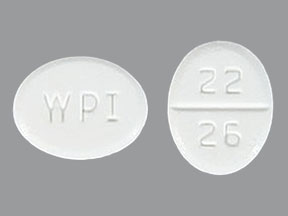
Ddavp Coupons & Savings Card – Discount Prices from $39.96
Brand for: Desmopressin
My prescription
Edit
0.2MG, Desmopressin (90 Tablets)
Select pharmacy

CVS
$39.96
COUPON PRICE
Walmart
$47.84
COUPON PRICE
Albertsons
$48.04
COUPON PRICE
Walgreens
$51.66
COUPON PRICEDdavp savings card
Show this card to your pharmacist
CVS
$39.96
BIN
ID
PCN
GRP
011867
LHF5DCB8D9
HT
LABH001
Powered by
Related vasopressins prescriptions
More prescriptions for Von Willebrand disease
Related vasopressins prescriptions
More prescriptions for Von Willebrand disease
Price history for Ddavp (brand) & Desmopressin (generic)
90 Tablets, 0.2MG
Average retail price for Ddavp
Average retail price for Desmopressin
Average SaveHealth price for Desmopressin
Our price history data is based on aggregated prescription data collected from participating pharmacies in America. Our prescription data updates daily to reflect the latest price changes. If you notice a missing data point, it means there wasn't sufficient data available to generate a monetary value for that date.
Over the last 12 months, the average discount price of Ddavp is $75.51 using the SaveHealth savings card. That's an average savings of 92.12% on Ddavp with our discount card.
*Retail prices are based on pharmacy claims data, and may not be accurate when we don't have enough claims.
Ddavp (Desmopressin) dosage forms
Dosage Quantity Price from Per unit 0.1MG 1 Tablet $2.85 $2.85 0.1MG 30 Tablets $12.89 $0.43 0.1MG 50 Tablets $19.81 $0.40 0.1MG 60 Tablets $23.27 $0.39 0.1MG 90 Tablets $36.00 $0.40 0.1MG 100 Tablets $37.08 $0.37 0.2MG 90 Tablets $42.00 $0.47 0.2MG 1 Tablet $2.93 $2.93 0.2MG 30 Tablets $15.45 $0.52 0.2MG 50 Tablets $24.08 $0.48
| Dosage | Quantity | Price from | Per unit |
|---|---|---|---|
| 0.1MG | 1 Tablet | $2.85 | $2.85 |
| 0.1MG | 30 Tablets | $12.89 | $0.43 |
| 0.1MG | 50 Tablets | $19.81 | $0.40 |
| 0.1MG | 60 Tablets | $23.27 | $0.39 |
| 0.1MG | 90 Tablets | $36.00 | $0.40 |
| 0.1MG | 100 Tablets | $37.08 | $0.37 |
| 0.2MG | 90 Tablets | $42.00 | $0.47 |
| 0.2MG | 1 Tablet | $2.93 | $2.93 |
| 0.2MG | 30 Tablets | $15.45 | $0.52 |
| 0.2MG | 50 Tablets | $24.08 | $0.48 |
| 0.2MG | 60 Tablets | $28.39 | $0.47 |
| 0.2MG | 100 Tablets | $43.74 | $0.44 |
What is the drug DDAVP used for?
DDAVP, also known as desmopressin, is used to treat conditions such as diabetes insipidus, bedwetting (nocturnal enuresis), and certain types of bleeding disorders like hemophilia A and von Willebrand's disease. It works by mimicking the action of vasopressin, a natural hormone that helps regulate water balance in the body and control bleeding.
What does DDAVP do for bleeding?
DDAVP (desmopressin) is used to help control bleeding in certain conditions by increasing the levels of clotting factors in the blood. It works by stimulating the release of von Willebrand factor and factor VIII from the body's stores, which are essential for blood clotting. This can be particularly beneficial for individuals with mild hemophilia A or von Willebrand disease.
What does DDAVP do to sodium?
DDAVP (desmopressin) can lead to a decrease in sodium levels in the blood, a condition known as hyponatremia. This occurs because DDAVP increases water reabsorption in the kidneys, which can dilute the sodium concentration in the bloodstream. It is important for healthcare providers to monitor sodium levels in patients taking DDAVP to prevent potential complications.
Is DDAVP an antidiuretic hormone?
Yes, DDAVP (desmopressin) is a synthetic form of vasopressin, which is an antidiuretic hormone. It is used to reduce urine production in conditions such as diabetes insipidus and to manage bleeding in certain disorders.
What is the purpose of DDAVP?
DDAVP, also known as desmopressin, is primarily used to treat conditions related to a deficiency of the hormone vasopressin. It is commonly prescribed for managing central diabetes insipidus, a condition where the body produces an insufficient amount of antidiuretic hormone, leading to excessive urination and thirst. Additionally, DDAVP is used to treat bedwetting (nocturnal enuresis) in children and to manage bleeding disorders such as von Willebrand's disease and mild hemophilia A by promoting the release of stored clotting factors.
